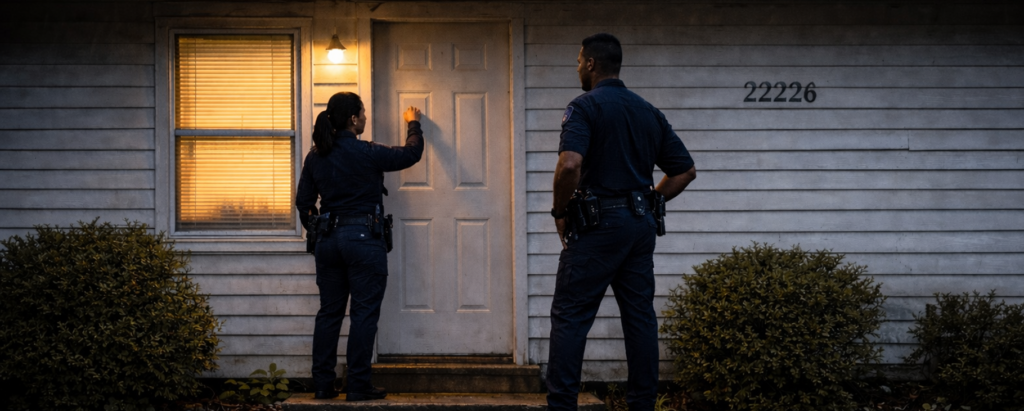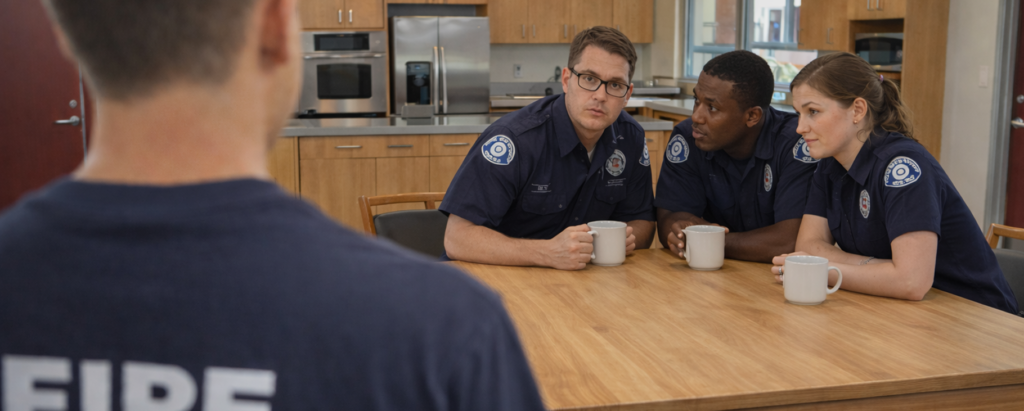If you’ve ever paused a fire video mid-flashover to announce, “I would’ve totally done X,” congratulations! You’re human. Also, you might be dangerously close to becoming what we lovingly call an “armchair incident commander.” I’m here to provide a friendly nudge to turn that instinct into something useful for you, your crew, and your community.
We all do it. We watch a video online and quickly decide how it should’ve been done. “Should’ve went interior, should’ve called a second alarm, should’ve vented the roof.” I do the same thing, even with police body-cam videos, though I have never worked even five minutes as a law enforcement officer. “Should’ve tased him, should’ve called for backup, should’ve waited until the subject was in handcuffs before you said that.” It is super easy to criticize, and we all have gotten really good at it.
The internet started serving us these videos years ago. Social media has made sharing and commenting on them faster and easier. Now you can take it to the next level by starting a podcast and voicing your opinions to anyone who will listen. But whether we have an audience of one or 10,000 … is it helping?
Short answer: Sometimes — but only if we treat what we’re watching as a training scenario and not a chance to dunk on another public safety professional. The difference is whether we use the clip to improve our own decision-making or just to harvest “likes” by Monday-morning quarterbacking.
How Armchair Quarterbacking Works
We all know how it begins. You see a clip shared on X or YouTube or Facebook. Or maybe somebody forwards you a text or email. You open it up, bracing yourself for what you’re about to see. As you watch the video unfold, you immediately begin to sketch out in your mind what they should have done. Or what you would’ve done, if only you’d been in charge.
From your vantage point on the sofa (or more likely, sitting on the toilet), it’s easy to criticize other people’s calls. The wall collapses. “Should’ve seen that corner separating.” The place flashes over. “Should’ve hit it from the outside first.” A firefighter bails out a window. “Should’ve read the smoke better.”
Our critiques sound so plausible — so authoritative — but in reality, we don’t really know. We don’t know what information the crew was told before the thing happened. We don’t know what orders the incident commander gave or didn’t give. We don’t know what resources were on the scene, what the ETA of the next due unit was, or the status/experience/equipment/training of the crew on the scene. Experience tells us we don’t know what we don’t know.
Without any of these details, we would like to believe the responders in the video were trying to do the right thing and make the situation better for the citizens they serve. But as anyone who’s ever been on the internet knows, it’s so, so hard to give others the benefit of the doubt.
“Use the experience of others to better yourself and your crew, not to tear down your peers and their department.”
Comparisons and Contrasts
There’s a name for that tiny voice in your brain whispering, “You should’ve seen that coming.” It’s called hindsight bias. Once we know the outcome of a scenario, our memory backfills a neat story that makes the event feel obvious — even inevitable. It’s a universal human trait, and it’s even more likely to ramp up after particularly bad outcomes. Recognizing hindsight bias helps us keep critiques fair and actually educational.
So, what is the proper way to be a keyboard critic? It is actually really simple. Instead of pontificating on how you feel the firefighters in the video should have done their job, pause and think about how you would handle the situation using your own personnel and the resources available to you in your department.
I first used this technique years ago after reading the NIOSH report of one of the tragic multiple firefighter fatality fires. When I took a step back and did an honest analysis of what I read, here’s what I noticed:
- Size of the department: a little bigger than mine
- Staffing model: about the same as mine
- Response time of first units and mutual aid: very similar to mine
- Structure involved: just like over 100 in my community
When I thought about how similar that crew was to my own, that started the conversation in my head: “What would we have done?”
Give Grace to Get Grace
Sitting at your computer, watching the aftermath of something traumatic and horrible, it’s easy to form opinions and judge the actions of others. But is that fair? Is it ethical?
Here’s a simple gut check: If your critique wouldn’t be appropriate in a table-top with the involved crew sitting right across from you, it probably doesn’t belong on social media.
I encourage everyone in public safety to apply the “kitchen table rule” — if you wouldn’t say it across the table to your brothers and sisters who went through the ordeal, don’t post it across the internet. Even if you can’t resist the urge to privately judge the actions of those on the scene, at least hold back from publicly criticizing them in the comments section.
In other words, give a little grace. We know the result because we have seen the end of the video. But the responders who showed up that day hadn’t seen the video yet, so maybe give them the benefit of the doubt that they would have done things differently if they knew what was going to happen as well.
If you make this approach your personal standard, maybe others will give you the benefit of the doubt if you ever find yourself in one of those viral videos.
Timely fire service content in your inbox: SUBSCRIBE NOW!
The True Value of Viral Video
A much more productive response, when you see a firefighting video online, is to seize the opportunity to use it as a teaching tool. Take the video and apply it to your department. How would you have handled it based on the resources you have available? Talk with your crew and discuss what happens or why the situation goes sideways. Would you have seen that coming? How would you have responded?
It is super easy to be a critic. Social media has made it even easier to criticize the actions of others. But the reality is, we don’t know the whole situation from the snippet of video being shared.
Use the experience of others to better yourself and your crew, not to tear down your peers and their department. Instead of dwelling on what went wrong, make “What would we have done?” your default setting. That habit builds humility, sharpens tactics, and (most importantly) prepares you for the next real alarm when no pause button exists.
Be curious, be kind, and be the critic your future self wants sitting in that armchair.
- Blog Articles




